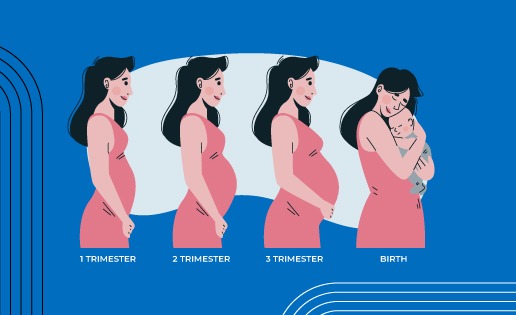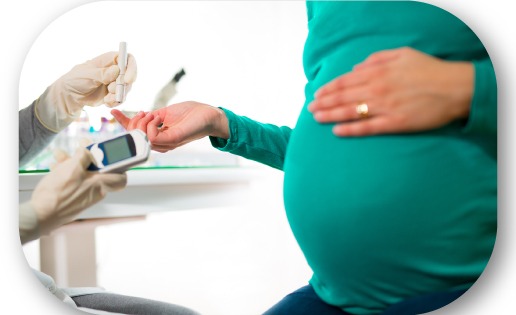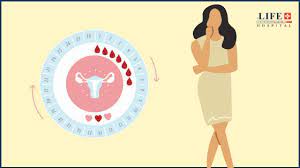Specialized center for Urinary Tract Infection
A urinary traction infection (UTI) is a very common type of infection in your urinary system.
THE LIFE PLUS HOSPITAL Care is COVID 19 Safe
- Our Hospital premises are COVID safe
- Regular sanitization of clinic & hospital premises
- Immediate medical assistance through Online Consultation
Specialized center for Urinary Tract Infection
A urinary traction infection (UTI) is a very common type of infection in your urinary system.
THE LIFE PLUS HOSPITAL Care is COVID 19 Safe
- Our Hospital premises are COVID safe
- Regular sanitization of clinic & hospital premises
- Immediate medical assistance through Online Consultation

Urinary Tract Infections
A urinary traction infection (UTI) is a very common type of infection in your urinary system. A UTI can involve any part of your urinary system, including the urethra, ureters, bladder and kidneys. Symptoms typically include needing to urinate often, having pain when urinating and feeling pain in your side or lower back.
Symptoms
- Pain in the side (flank), abdomen or pelvic area.
- Pressure in the lower pelvis.
- Frequent need to urinate (frequency), urgent need to urinate (urgency) and Incontinence (urine leakage).
- Painful urination (dysuria) and blood in the urine.
Most UTIs can be treated with an antibiotic.
Let's Schedule Your Appointment
Urinary Tract Infections

Urinary tract infections
Urinary tract infections (UTIs) are most often caused by bacteria (germs) that get into the bladder, which is part of the urinary tract. UTIs are also called bladder infections. UTIs are common, especially in women. More than half of women will have at least one UTI at some point in life. UTIs are serious and often painful. But most UTIs are easy to treat with antibiotics.
Women get UTIs up to 30 times more often than men do. Also, as many as 4 in 10 women who get a UTI will get at least one more within six months.
Women get UTIs more often because a woman’s urethra (the tube from the bladder to where the urine comes out of the body) is shorter than a man’s. This makes it easier for bacteria to get into the bladder. A woman’s urethral opening is also closer to both the vagina and the anus, the main source of germs such as Escherichia coli (E. coli) that cause UTIs.
Overview
If you have a UTI, you may have some or all of these symptoms:
- Pain or burning when urinating
- An urge to urinate often, but not much comes out when you go
- Pressure in your lower abdomen
- Urine that smells bad or looks milky or cloudy
- Blood in the urine. This is more common in younger women. If you see blood in your urine, tell a doctor or nurse right away.
- Feeling tired, shaky, confused, or weak. This is more common in older women.
- Having a fever, which may mean the infection has reached your kidneys
To find out whether you have a UTI, your doctor or nurse will test a clean sample of your urine. This means you will first wipe your genital area with a special wipe. Then you will collect your urine in midstream in a cup. Your doctor or nurse may then test your urine for bacteria to see whether you have a UTI, which can take a few days.
If you have had a UTI before, your doctor may order more tests to rule out other problems. These tests may include:
- A cystogram. This is a special type of x-ray of your urinary tract. These x-rays can show any problems, including swelling or kidney stones.
- A cystoscopic exam. The cystoscope is a small tube the doctor puts into the urethra to see inside of the urethra and bladder for any problems.
Changes in hormone levels during pregnancy raise your risk for UTIs. UTIs during pregnancy are more likely to spread to the kidneys.
If you’re pregnant and have symptoms of a UTI, see your doctor or nurse right away. Your doctor will give you an antibiotic that is safe to take during pregnancy.
If left untreated, UTIs could lead to kidney infections and problems during pregnancy, including:
- Premature birth (birth of the baby before 39 to 40 weeks)
- Low birth weight (smaller than 5 1/2 pounds at birth)
- High blood pressure, which can lead to a more serious condition called preeclampsia
Our Gynecologists who are Treating the Diseases
Why The Life Plus Hospital?
 The Life Plus Hospital is COVID-19 safe
The Life Plus Hospital is COVID-19 safe
Your safety is taken care of by thermal screening, social distancing, sanitized clinics, and hospital rooms, sterilized surgical equipment, and mandatory PPE kits during surgery.
 Medical Expertise With Technology
Medical Expertise With Technology
Our Doctors spend a lot of time with you to diagnose your condition. You are assisted in all pre-assisted Hospitalisation process. We offer advanced laser and laparoscopic surgical treatment. Our procedures are USFDA approved.
 Assisted Surgery Experience
Assisted Surgery Experience
A dedicated Medical Coordinator assists you throughout the surgery journey from insurance paperwork, to free commute from home to hospital & back and admission-discharge process at the hospital.
 Post Natal Care
Post Natal Care
We offer free follow-up consultations and instructions including dietary tips as well as exercises to every patient to ensure they have a smooth recovery to their daily routines.
The Life Plus Hospital in Numbers
Years Of Expertise
Successful Surgeries
Consultation
Success Rate
Our Blogs
OUR GYNECOLOGY CENTER IN BANGALORE
Tell us about your problems and we’ll figure out the best treatment option for you.
Life Plus hospital
Women and Child Care Hospital in Indiranagar | LifePlus Hospital
At Life plus hospital, we offer a comprehensive range of women’s health services. The Department is managed by highly experienced lady gynecological doctors who offer specialized attention and compassionate care for women
Let's Schedule Your Appointment
Urinary Tract Infection Faq's
An average adult passes about 6 cups of urine daily.
This amount varies depending on how much you eat and drink and how active you are. During the night, your body produces about half the volume of urine that is produced during the day.
-
- Enlarged prostate in men
- Catheters placed in the urethra and bladder
- Diabetes
- Spinal cord injury or other nerve injury around the bladder
- Sexual intercourse, including anal intercourse
- Condom usePregnancy
- Not drinking enough fluids
- Kidney or urinary stones
-
- Pain or burning when urinating
- Frequent urge to urinate
- Sudden urge to urinate
- Blood in the urine














